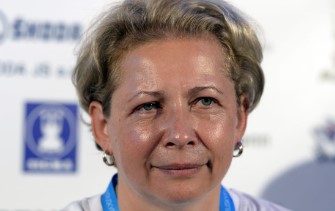A major intelligence operation in the Czech Republic has uncovered a shocking betrayal. A Belarusian journalist, Natalia Sudliankova, has been exposed as a key agent for the Russian military intelligence service (GRU). For over two decades, she worked undercover in the country, secretly serving Russian interests.
A Longtime Journalist Exposed as a Russian Spy
Sudliankova, who originally came to the Czech Republic in 1999 as a political refugee, had built a career as a journalist. She contributed to major media outlets, including Radio Free Europe, Lidové noviny, and Týden magazine. At the same time, she was secretly taking orders from the GRU and influencing public opinion through her writing.
According to the Czech counterintelligence service BIS, Sudliankova received direct instructions from a GRU officer named Alexey Shavrov. She was paid tens of thousands of euros for her work, with the payments made in cryptocurrency to avoid detection.
Now, her cover is blown. The Czech government has added Sudliankova and Shavrov to its national sanctions list. This means their assets are frozen, and they are banned from entering the country. Sudliankova has also been ordered to leave the Czech Republic within 30 days.
Brazil’s Espionage Against Paraguay Triggers Diplomatic Fallout and Itaipu Dam Dispute
How Russia Used Sudliankova for Covert Influence
The Czech intelligence service revealed that Sudliankova was working not just for the GRU, but also for other Russian organizations, including:
- The Russian Fund for the Support and Protection of the Rights of Compatriots Living Abroad
- The Immortal Regiment of Russia
Her mission? To influence the political landscape of the Czech Republic and support Russian interests in Europe. She arranged for certain articles to be published in Czech media, spreading Russian narratives while pretending to be an independent journalist.
One of her key tasks was working on behalf of Russian oligarch Alisher Usmanov, who is already under international sanctions. She also cooperated with Rosatom, Russia’s state nuclear company, which was excluded from a major nuclear power plant project in the Czech Republic.
Authorities say she communicated with GRU officer Alexey Shavrov through encrypted electronic channels, receiving direct instructions on what to write and whom to influence. In return, she was secretly paid through cryptocurrency transactions, making it harder to trace the money.
Alarming Russian Drone Espionage Targets Italy’s Defense and Research Facilities
The evidence against her is solid. According to Czech intelligence, they have proof of:
- Messages exchanged between Sudliankova and her Russian handler
- Transactions showing payments for her services
- Articles she wrote on Russian instructions
Her actions were part of a larger Russian strategy to manipulate information and influence public opinion in Europe.
The Czech Government Responds to the Threat
The Czech government has reacted swiftly to this discovery. Foreign Minister Jan Lipavský confirmed that Sudliankova’s activities were an example of Russia’s covert influence operations in democratic countries.
China’s Covert Surveillance in UK Universities Exposes Sinister Espionage Operations
“This is part of the hybrid war that Russia is waging against Europe and the democratic values we stand for,” he stated.
Interior Minister Vít Rakušan emphasized how serious the situation is. He revealed that Russia has attempted over 100 acts of sabotage across Europe in the past year alone. The Czech government had already been working on a new law against foreign agents, and this case proves why such laws are necessary
“If this law had been in place earlier, we wouldn’t just be expelling Sudliankova,” Rakušan said. “She would be facing criminal charges.”
Because Sudliankova and Shavrov are now on the Czech national sanctions list, they:
- Cannot enter the country
- Have their financial assets frozen
- Are being considered for EU-wide sanctions
The Czech government has already proposed that both of them should be added to the EU’s sanctions list as well, meaning they would be banned from entering any European Union country and cut off from financial systems across Europe.
This case has sent shockwaves through Czech society, as Sudliankova was trusted for years as a journalist. Her exposure as a Russian intelligence asset highlights the ongoing danger of foreign influence and covert espionage in Europe.

